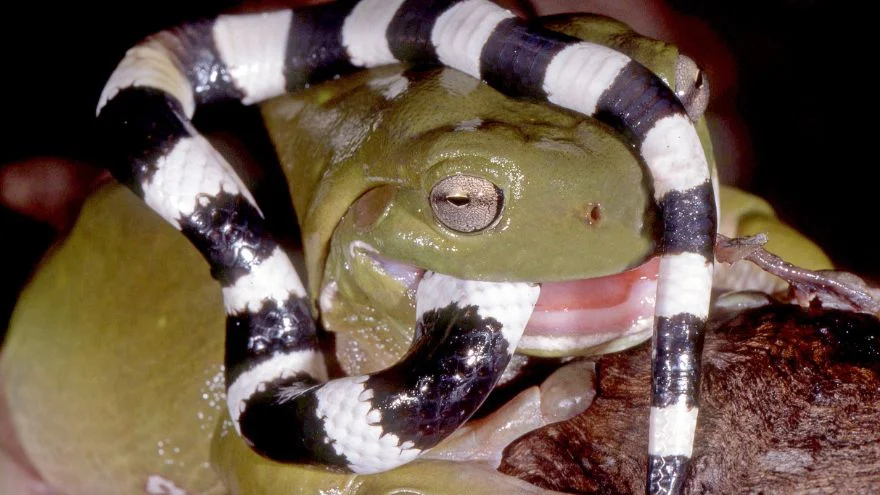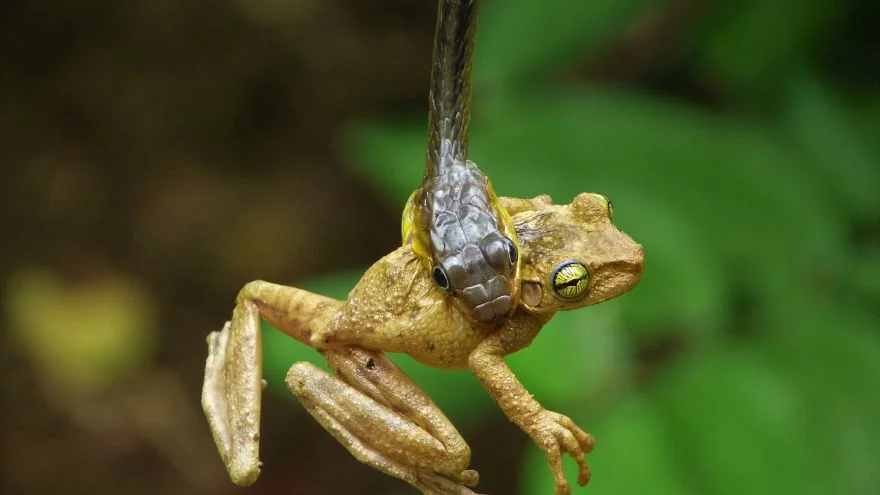It’s no news that all animals need water for survival, and frogs are not exempted from this. However, unlike other animals, frogs do not take water directly from their mouths.
So how does a frog drink water or stay hydrated?
Frogs depend on water for most of their biological functions. Hence, they take in more water than most animal species.
However, they don’t actually drink water through their mouth. Instead, frogs absorb water through their skin in an area called the drinking patch.
In the following paragraphs, you’ll get more info on this intelligent amphibian and their love for wet habitats.
Do Frogs Drink Water?
Yes, all frogs take in water. In addition, frogs love water and humid weather more than anything. Their skin is also moist, which shows their love for wet environments.
An adult frog can stay for up to 16 months without food. Therefore, you can say that they depend on the water more than anything else for survival.
Water helps not just frogs but several other amphibians for feeding, respiration, reproduction, etc. Moreover, the water helps regulate their body temperature all day.
How Do Frogs Drink Water?
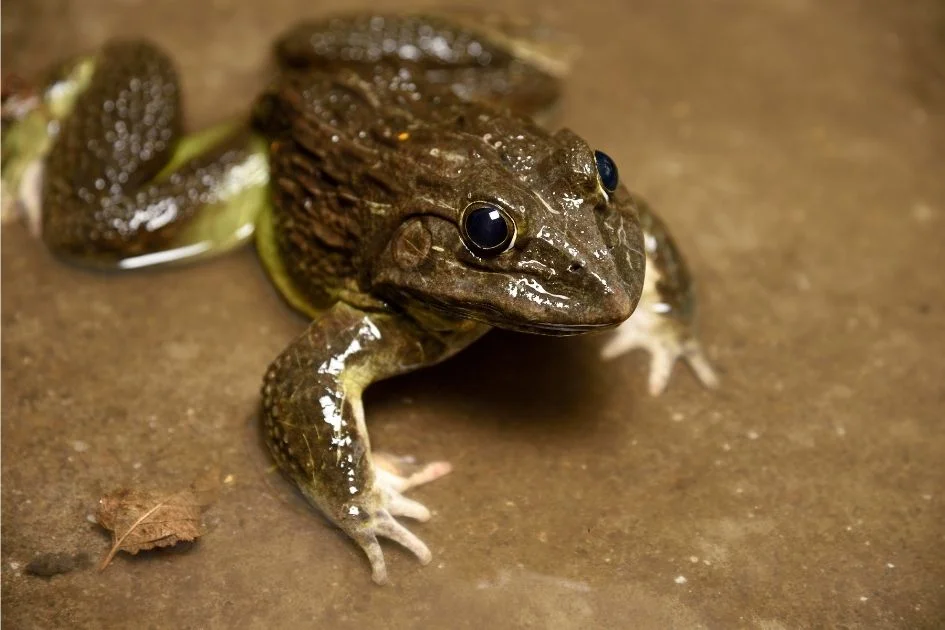
Just like every other animal, frogs take in water. However, you can’t call it drinking per se. This is true, especially since they don’t take water through their mouth.
Frogs’ replenishment of their water level is quite different from other animals. It’s more like a direct approach than going through the stomach for digestion first.
Frogs generally absorb water through their skin. This is done by a process quite popularly known as osmosis.
In the case of a frog, the skin serves as the semi-permeable membrane through which water solvent passes.
The part of the skin responsible for this feat is called the drinking patch; this is how the water passes into the frog’s system. In other words, frogs absorb water and do not drink.
What this means is that a frog can be sitting still in a pond and taking water at the same time. What’s more, it has the ability to take in water directly from a humid environment even without direct contact with water.
With that said, these amphibians tend to perish in extremely hot environments. Just as it’s easy for them to take in water, they can easily lose water to the environment if exposed to intense hot climates.
Besides that, their osmosis ability also exposes them to several other risks. They can’t only take in water through their skin but can also absorb harmful toxins or chemicals. Hence, this can prove lethal, killing the frog within a short period.
What Kind of Water Do Frogs Drink?
If you have a pet frog or are planning to get one, it is crucial to know that not all water is good for the frog.
As earlier said, frogs are quick to absorb water. They can also find it hard to differentiate which is best for them. Therefore, it’s important to be careful always.
With that said, you should completely avoid tap water for a frog. Usually, water regulation bodies mostly treat this type of water with certain chemicals like chlorine for purification.
Chlorine can be harmful to frogs in general, and it can also lead to death. Therefore, if you are selecting the ideal water suitable for a frog, it’s best to go for natural water.
It can probably be from a river, pond, or even rainwater. Distilled water also works fine since it doesn’t contain purifying chemicals.
Regardless of all of these, the pH reading of the water must be ideal. The best pH for frogs is between 6.5 and 7.5.
Importance of Water To Frogs
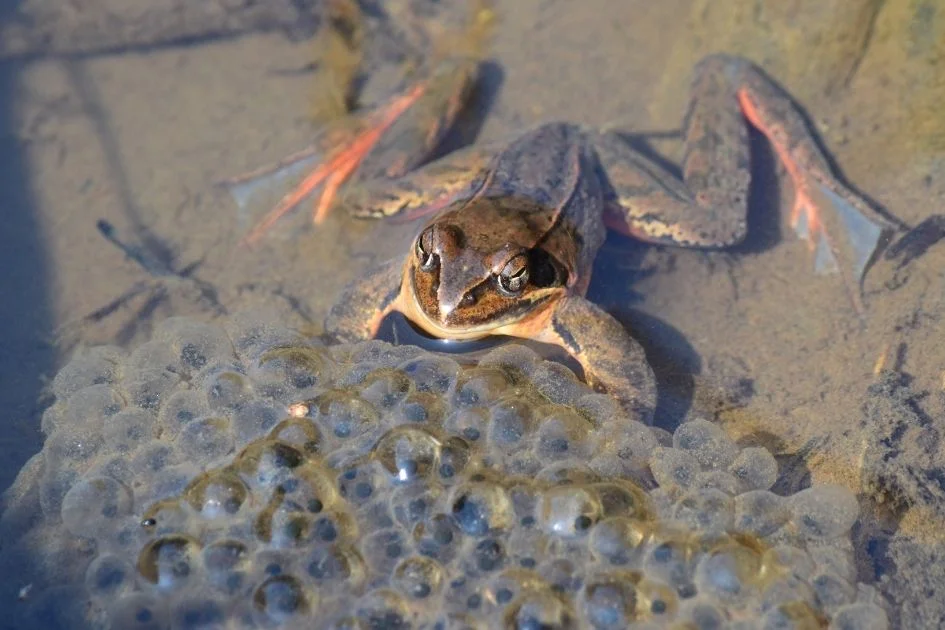
Water provides several benefits to frogs to ensure their survival. There are no frog species that can survive completely without water.
While a few species in the desert region can stay without water, they possess several body features to help them retain water for a long time.
What’s more, their performance is quite slow compared to several other frog species. With that in mind, a few major importance of water to frogs are:
Respiration
This is a major importance of water to frogs. In a way, frogs’ osmotic process also helps them breathe, especially in water.
While frogs take in water from their surroundings, they tend to take in oxygen in the same process. This is a two-way process; it is not that different on land.
Frogs tend to secrete mucus when on land to aid the process. Regardless, frogs also have lungs like several land animals that help to ensure respiration on land.
A fact to note is that frogs can drown, especially since they have lungs. This means that their body is built so that water can only go through several channels.
If eventually, water should pass through the lungs, they’ll suffer. This is probably one of the reasons they do not always completely submerge themselves in water.
Reproduction
Water also plays a key role during reproduction, especially since the amphibians’ eggs are not amniotic. When frogs lay their eggs, they always come out jelly-like.
The jelly substance helps to protect the eggs from friction and also predators. However, they can easily die when exposed to a hot climate since they dry out.
Hence, water helps to ensure this never happens, which explains why they mostly lay their eggs in ponds.
Also, upon hatching, most of the frog species pass through the larvae stage. With just fins and tails, they wouldn’t be able to survive on land.
Thermoregulation
Water makes it easy for a frog to regulate its temperature. To create a cooling effect, what these amphibians do is that they give off a certain amount of water from their body.
However, the problem with this process is that they might need an immediate water supply to replenish.
Regardless, most of the time, frogs rather dip themselves in water and allow the convection effect to cool the water, which in turn cools their body.
Bodily Functions
Most frogs generally have a high hydration level. The high hydration level is crucial for their general optimum performance as amphibians, ensuring their cells remain active and healthy at all times.
Water is also important to their skin since it produces mucus. Normally, it takes quite a lot of water for them to produce the mucus that covers their skin because amphibians possess several glands on their skin.
You can even say they have more glands than any other animal. The two major glands in a frog’s body are the mucus and granular glands.
As the name suggests, the mucus glands are responsible for producing the mucus on the frog’s body. While the mucus lubricates the frog’s body, it greatly helps the frog retain water.
The granular glands produce a compound that is high in protein. For the poisonous frog species, the granular glands also secrete a poisonous substance that’s lethal to predators.
Wrap Up
When it comes to water, only a few animals show as much love for it as frogs do. Water is simply an element that frogs depend on for survival.
While water is their perfect habitat, the amphibians also tend to consume quite a lot through their special body functions.
You can even say that frogs take water more passively compared to several other animals.
Featured Image Credit: IdealPhoto30 / Getty Images
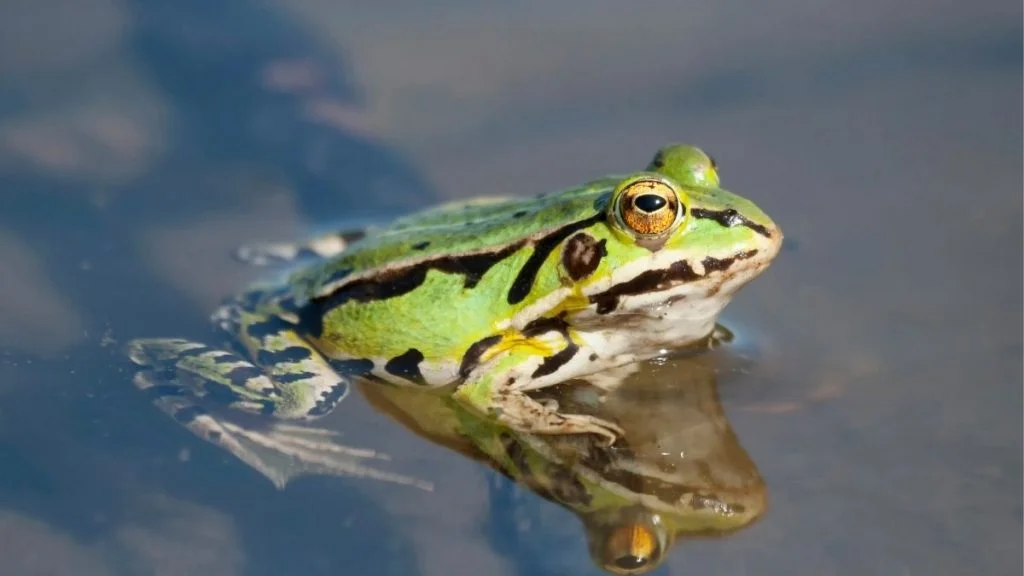
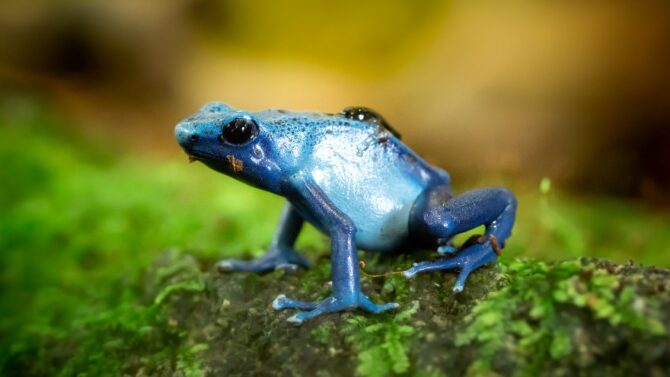
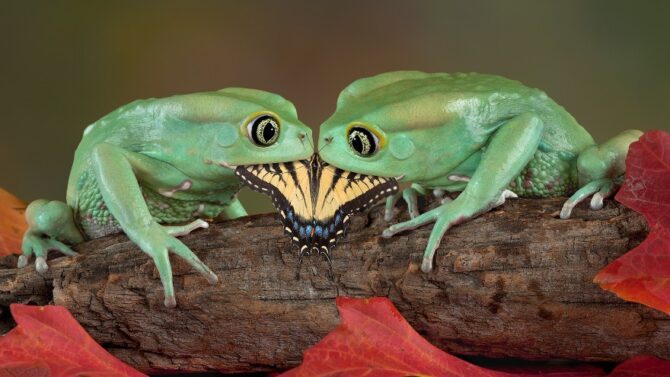
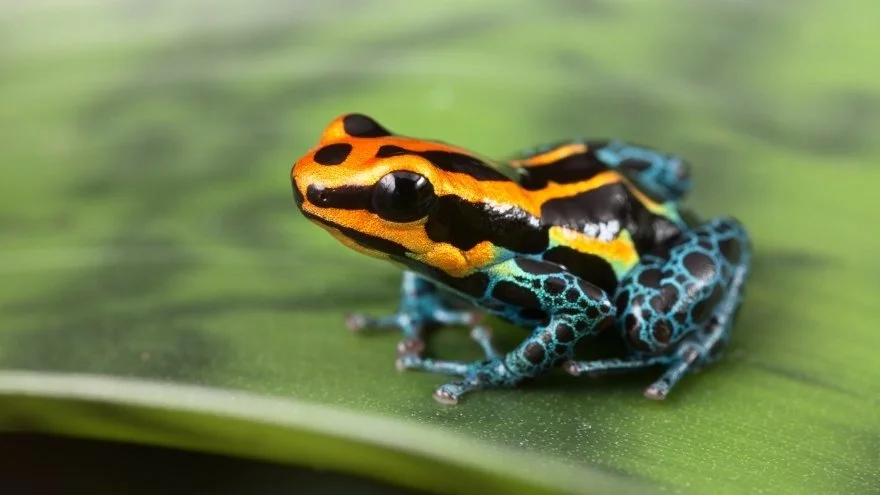
![How Long Can Frogs Go Without Food Or Water [Answered]](https://animalvivid.com/wp-content/uploads/2022/08/How-Long-Can-Frogs-Go-Without-Food-Or-Water-Answered.jpg.webp)
